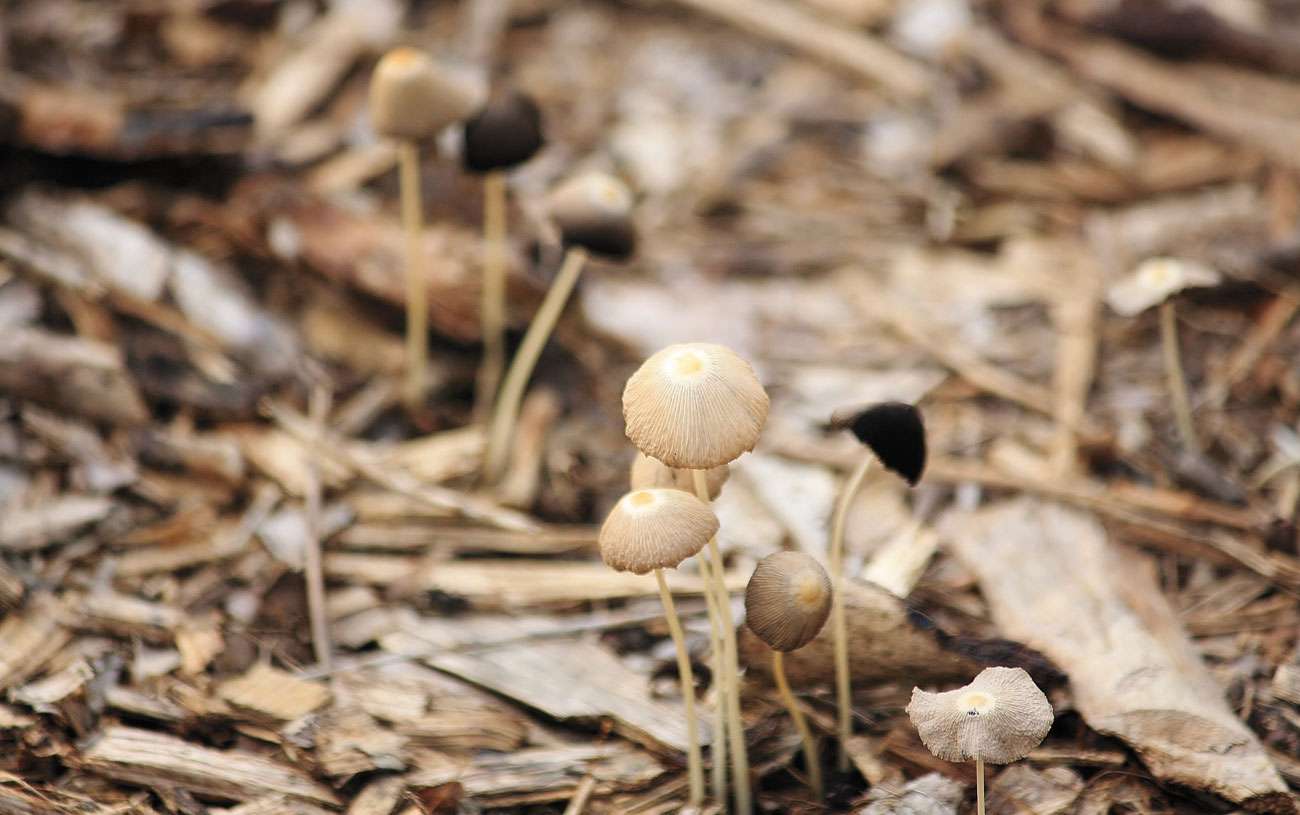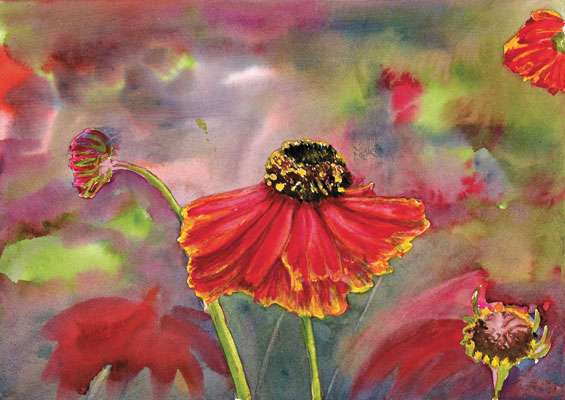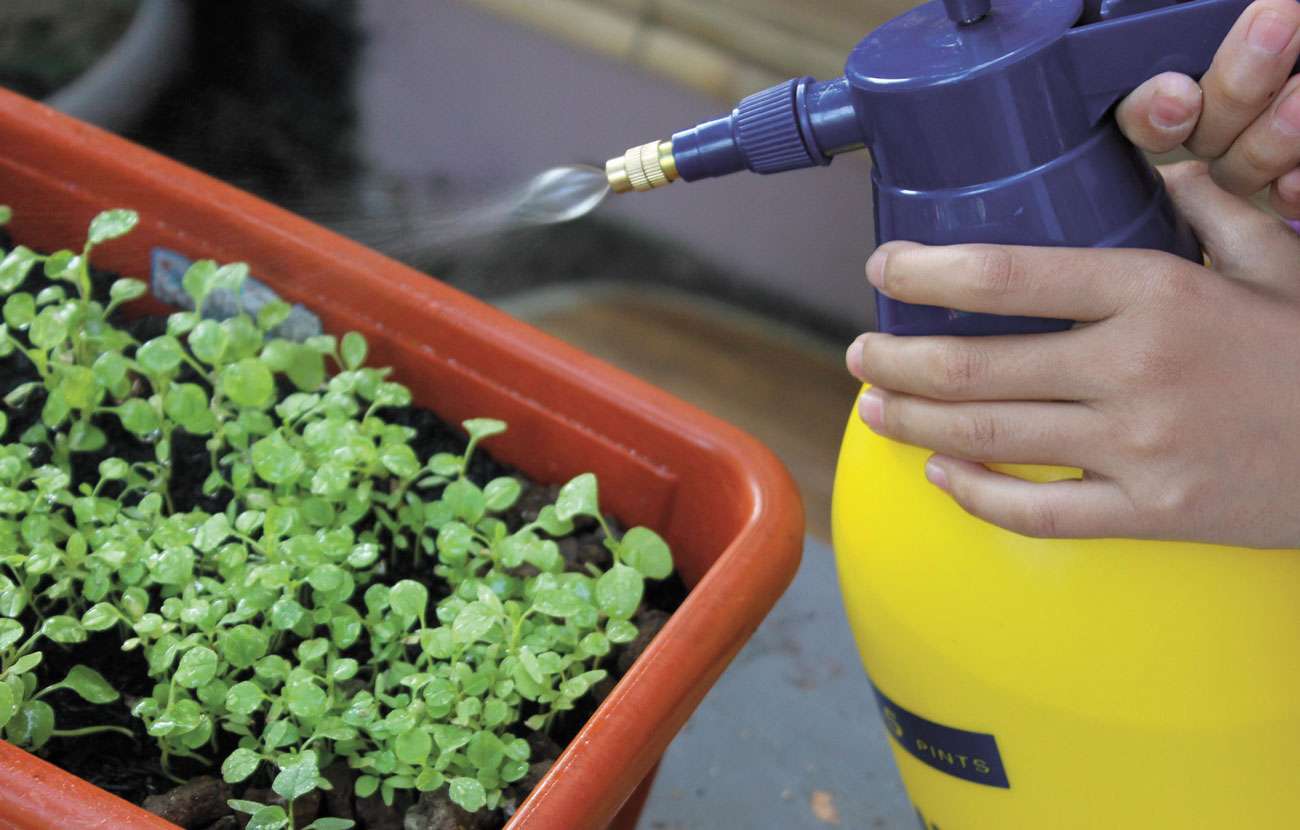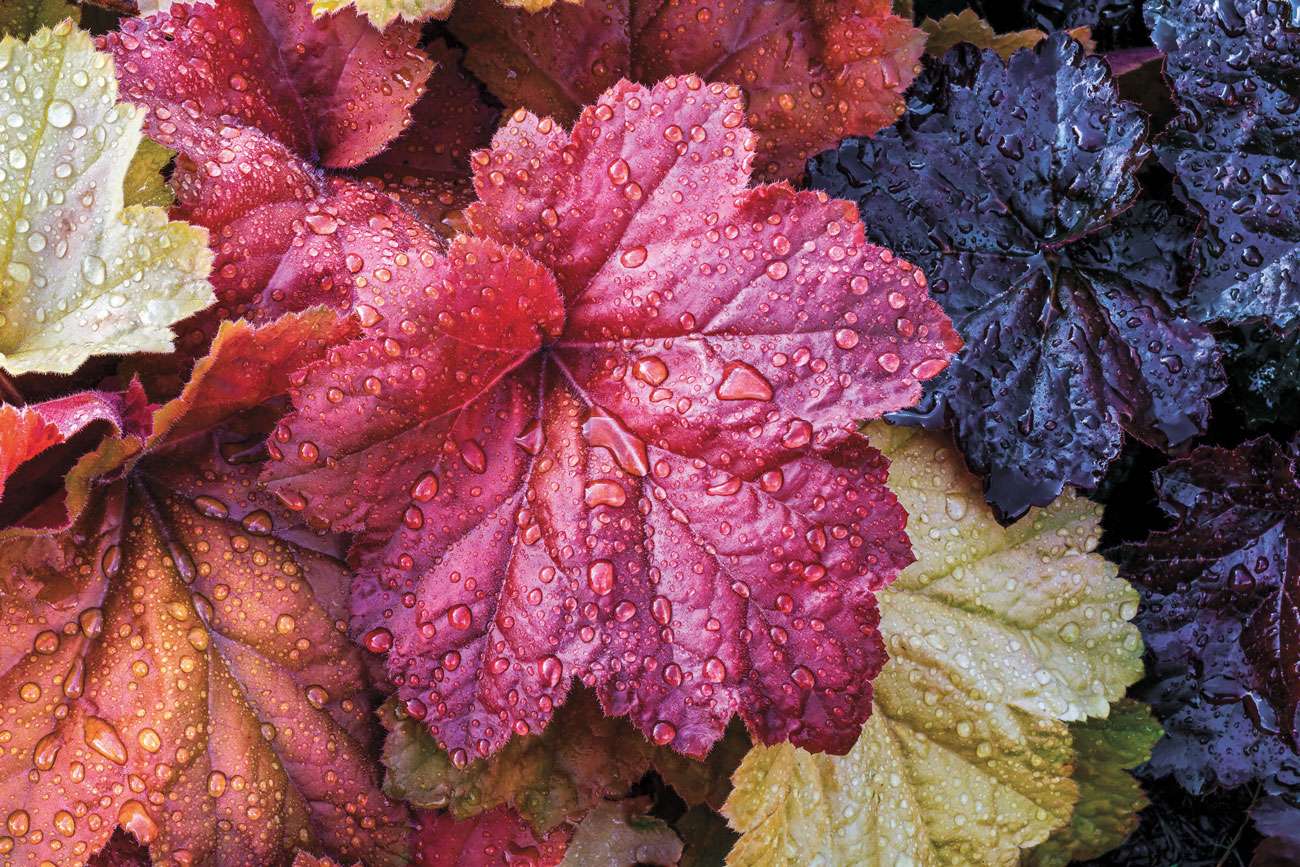
March is the first month in the Roman calendar, and it is named after Mars, God of War. The days are longer and we can literally feel the warmth starting to creep in again. We certainly have had unpredictable weather patterns but glorious sunshine has enriched the colours in the garden and countryside if we only look for it – as you can see from the above picture.
I have only just cut back the perennials and grasses, tidied away the dead leaves and pruned the roses, to avoid them being damaged earlier by the frosts. When pruning roses it is best to use sharp secateurs and cut the stems at an angle away from a shoot, so that the water runs away rather than damaging the tender new growth. I am then adding a layer of compost on top of the soil, using the no-dig technique, which is being promoted by the RHS. The basic principle is that instead of digging the soil, you leave it undisturbed and allow the soil life to do the work for you, which is great news. Fungi, worms and other organisms thrive, leaving the soil well aerated and full of nutrients that are readily available to plants, which is exactly what gardeners try to do by digging and adding fertiliser!
This means that there is much less work. The soil recovers from digging by growing weeds, so when you stop digging you stop exposing weed seeds to light and air, so far fewer will germinate.

Woodchips supress the weeds and enhance fungi growth
Preserving fertility and preventing weeds are still crucial but we all need to learn to appreciate the incredibly important role that mycorrhizal fungi play and how the no-dig method can help. I have already used this in the vegetable beds and it seems to work, as they grow very strongly. People are now beginning to grasp just how much carbon healthy soils lock up and the vital role mycorrhizal fungi have in that process, as has been explored in David Attenborough’s Green Planet series. I am also using woodchips on some of the flower beds to suppress weeds but also they also add carbon to the soil and feed those hungry fungi. Clever stuff!
Lots of seeds can be sown now and kept frost free in an unheated greenhouse, or conservatory. I have already grown up a number of hardy perennials, which I will plant out in April, when the danger of frosts should be minimal. Again, I have decided to aim for high impact colour, by planting in groups of 3 – 5 plants, rather than scattering them amongst existing plants and I hope you will like the results in my July article!
I must admit that I thought I had rather ‘overdone’ the bulb planting last autumn – they include Iris, Gladiolus Byzantinus, Ixia and Alliums – but it is very exciting to see them starting to emerge from the soil! The beds are already full of various species of crocus and one of my favourites is Iris Reticulata Harmony.
Gardening is a really wonderful, healthy activity, so do enjoy your garden.











